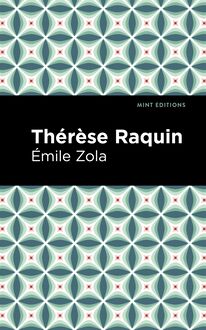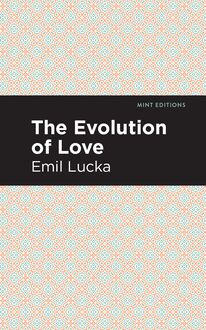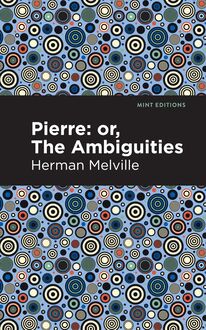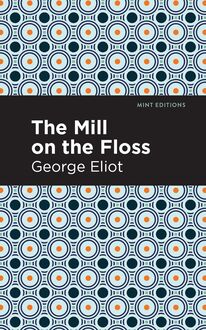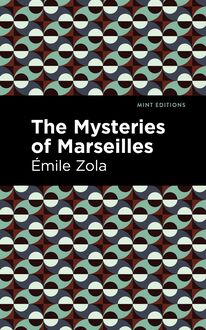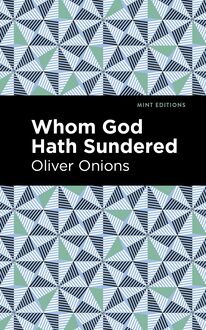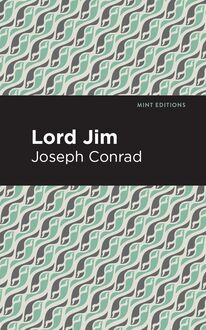-
 Univers
Univers
-
 Ebooks
Ebooks
-
 Livres audio
Livres audio
-
 Presse
Presse
-
 Podcasts
Podcasts
-
 BD
BD
-
 Documents
Documents
-
- Cours
- Révisions
- Ressources pédagogiques
- Sciences de l’éducation
- Manuels scolaires
- Langues
- Travaux de classe
- Annales de BEP
- Etudes supérieures
- Maternelle et primaire
- Fiches de lecture
- Orientation scolaire
- Méthodologie
- Corrigés de devoir
- Annales d’examens et concours
- Annales du bac
- Annales du brevet
- Rapports de stage
La lecture à portée de main
Vous pourrez modifier la taille du texte de cet ouvrage
Découvre YouScribe en t'inscrivant gratuitement
Je m'inscrisDécouvre YouScribe en t'inscrivant gratuitement
Je m'inscrisEn savoir plus
Vous pourrez modifier la taille du texte de cet ouvrage
En savoir plus

Description
Maggie Tulliver is a brilliant woman who finds herself at the center of a love triangle between her childhood crush and a cousin’s potential fiancé. The controversial romance makes her a town pariah, damaging her most beloved relationships.
Maggie adores her older brother Tom, who’s a consistent yet sometimes adversarial figure. She’s an idealistic student of the world, while Tom is more of a conservative. Their sibling dynamic is tested by Maggie’s interactions with two male suitors: Philip Wakem and Stephen Guest. Philip is the son of their father’s mortal enemy, while Stephen is already linked to their cousin Lucy. When Maggie’s dalliance with the latter is exposed, she is immediately shunned by the locals, including her brother.
The Mill on the Floss is an examination of the complex dynamic between family and friends. Like many of Eliot’s novels, it highlights the dangers of groupthink and individual oppression. In this case, Maggie must sacrifice her personal happiness for the acceptance of others.
With an eye-catching new cover, and professionally typeset manuscript, this edition of The Mill on the Floss is both modern and readable.
Sujets
Informations
| Publié par | Mint Editions |
| Date de parution | 26 janvier 2021 |
| Nombre de lectures | 0 |
| EAN13 | 9781513275376 |
| Langue | English |
| Poids de l'ouvrage | 2 Mo |
Informations légales : prix de location à la page 0,0550€. Cette information est donnée uniquement à titre indicatif conformément à la législation en vigueur.
Extrait
The Mill on the Floss
George Eliot
The Mill on the Floss was first published in 1860.
This edition published by Mint Editions 2021.
ISBN 9781513270371 | E-ISBN 9781513275376
Published by Mint Editions®
minteditionbooks.com
Publishing Director: Jennifer Newens
Design & Production: Rachel Lopez Metzger
Typesetting: Westchester Publishing Services
C ONTENTS B OOK F IRST . B OY AND G IRL I. O UTSIDE D ORLCOTE M ILL II. M R . T ULLIVER , OF D ORLCOTE M ILL , D ECLARES H IS R ESOLUTION A BOUT T OM III. M R . R ILEY G IVES H IS A DVICE C ONCERNING A S CHOOL FOR T OM IV. T OM I S E XPECTED V. T OM C OMES H OME VI. T HE A UNTS AND U NCLES A RE C OMING VII. E NTER THE A UNTS AND U NCLES VIII. M R . T ULLIVER S HOWS H IS W EAKER S IDE IX. T O G ARUM F IRS X. M AGGIE B EHAVES W ORSE T HAN S HE E XPECTED XI. M AGGIE T RIES TO R UN A WAY F ROM H ER S HADOW XII. M R . AND M RS . G LEGG AT H OME XIII. M R . T ULLIVER F URTHER E NTANGLES THE S KEIN OF L IFE B OOK S ECOND . S CHOOL -T IME I. T OM ’ S “F IRST H ALF ” II. T HE C HRISTMAS H OLIDAYS III. T HE N EW S CHOOLFELLOW IV. “T HE Y OUNG I DEA ” V. M AGGIE ’ S S ECOND V ISIT VI. A L OVE -S CENE VII. T HE G OLDEN G ATES A RE P ASSED B OOK T HIRD . T HE D OWNFALL I. W HAT H AD H APPENED AT H OME II. M RS . T ULLIVER ’ S T ERAPHIM , OR H OUSEHOLD G ODS III. T HE F AMILY C OUNCIL IV. A V ANISHING G LEAM V. T OM A PPLIES H IS K NIFE TO THE O YSTER VI. T ENDING TO R EFUTE THE P OPULAR P REJUDICE A GAINST THE P RESENT OF A P OCKET -K NIFE VII. H OW A H EN T AKES TO S TRATAGEM VIII. D AYLIGHT ON THE W RECK IX. A N I TEM A DDED TO THE F AMILY R EGISTER B OOK F OURTH . T HE V ALLEY OF H UMILIATION I. A V ARIATION OF P ROTESTANTISM U NKNOWN TO B OSSUET II. T HE T ORN N EST I S P IERCED BY THE T HORNS III. A V OICE F ROM THE P AST B OOK F IFTH . W HEAT AND T ARES I. I N THE R ED D EEPS II. A UNT G LEGG L EARNS THE B READTH OF B OB ’ S T HUMB III. T HE W AVERING B ALANCE IV. A NOTHER L OVE -S CENE V. T HE C LOVEN T REE VI. T HE H ARD -W ON T RIUMPH VII. A D AY OF R ECKONING B OOK S IXTH . T HE G REAT T EMPTATION I. A D UET IN P ARADISE II. F IRST I MPRESSIONS III. C ONFIDENTIAL M OMENTS IV. B ROTHER AND S ISTER V. S HOWING T HAT T OM H AD O PENED THE O YSTER VI. I LLUSTRATING THE L AWS OF A TTRACTION VII. P HILIP R E - ENTERS VIII. W AKEM IN A N EW L IGHT IX. C HARITY IN F ULL -D RESS X. T HE S PELL S EEMS B ROKEN XI. I N THE L ANE XII. A F AMILY P ARTY XIII. B ORNE A LONG BY THE T IDE XIV. W AKING B OOK S EVENTH . T HE F INAL R ESCUE I. T HE R ETURN TO THE M ILL II. S T . O GG ’ S P ASSES J UDGMENT III. S HOWING T HAT O LD A CQUAINTANCES A RE C APABLE OF S URPRISING U S IV. M AGGIE AND L UCY V. T HE L AST C ONFLICT C ONCLUSION
BOOK FIRST
BOY AND GIRL
I
O UTSIDE D ORLCOTE M ILL
A wide plain, where the broadening Floss hurries on between its green banks to the sea, and the loving tide, rushing to meet it, checks its passage with an impetuous embrace. On this mighty tide the black ships—laden with the fresh-scented fir-planks, with rounded sacks of oil-bearing seed, or with the dark glitter of coal—are borne along to the town of St. Ogg’s, which shows its aged, fluted red roofs and the broad gables of its wharves between the low wooded hill and the river-brink, tingeing the water with a soft purple hue under the transient glance of this February sun. Far away on each hand stretch the rich pastures, and the patches of dark earth made ready for the seed of broad-leaved green crops, or touched already with the tint of the tender-bladed autumn-sown corn. There is a remnant still of last year’s golden clusters of beehive-ricks rising at intervals beyond the hedgerows; and everywhere the hedgerows are studded with trees; the distant ships seem to be lifting their masts and stretching their red-brown sails close among the branches of the spreading ash. Just by the red-roofed town the tributary Ripple flows with a lively current into the Floss. How lovely the little river is, with its dark changing wavelets! It seems to me like a living companion while I wander along the bank, and listen to its low, placid voice, as to the voice of one who is deaf and loving. I remember those large dipping willows. I remember the stone bridge.
And this is Dorlcote Mill. I must stand a minute or two here on the bridge and look at it, though the clouds are threatening, and it is far on in the afternoon. Even in this leafless time of departing February it is pleasant to look at,—perhaps the chill, damp season adds a charm to the trimly kept, comfortable dwelling-house, as old as the elms and chestnuts that shelter it from the northern blast. The stream is brimful now, and lies high in this little withy plantation, and half drowns the grassy fringe of the croft in front of the house. As I look at the full stream, the vivid grass, the delicate bright-green powder softening the outline of the great trunks and branches that gleam from under the bare purple boughs, I am in love with moistness, and envy the white ducks that are dipping their heads far into the water here among the withes, unmindful of the awkward appearance they make in the drier world above.
The rush of the water and the booming of the mill bring a dreamy deafness, which seems to heighten the peacefulness of the scene. They are like a great curtain of sound, shutting one out from the world beyond. And now there is the thunder of the huge covered wagon coming home with sacks of grain. That honest wagoner is thinking of his dinner, getting sadly dry in the oven at this late hour; but he will not touch it till he has fed his horses,—the strong, submissive, meek-eyed beasts, who, I fancy, are looking mild reproach at him from between their blinkers, that he should crack his whip at them in that awful manner as if they needed that hint! See how they stretch their shoulders up the slope toward the bridge, with all the more energy because they are so near home. Look at their grand shaggy feet that seem to grasp the firm earth, at the patient strength of their necks, bowed under the heavy collar, at the mighty muscles of their struggling haunches! I should like well to hear them neigh over their hardly-earned feed of corn, and see them, with their moist necks freed from the harness, dipping their eager nostrils into the muddy pond. Now they are on the bridge, and down they go again at a swifter pace, and the arch of the covered wagon disappears at the turning behind the trees.
Now I can turn my eyes toward the mill again, and watch the unresting wheel sending out its diamond jets of water. That little girl is watching it too; she has been standing on just the same spot at the edge of the water ever since I paused on the bridge. And that queer white cur with the brown ear seems to be leaping and barking in ineffectual remonstrance with the wheel; perhaps he is jealous because his playfellow in the beaver bonnet is so rapt in its movement. It is time the little playfellow went in, I think; and there is a very bright fire to tempt her: the red light shines out under the deepening gray of the sky. It is time, too, for me to leave off resting my arms on the cold stone of this bridge…
Ah, my arms are really benumbed. I have been pressing my elbows on the arms of my chair, and dreaming that I was standing on the bridge in front of Dorlcote Mill, as it looked one February afternoon many years ago. Before I dozed off, I was going to tell you what Mr. and Mrs. Tulliver were talking about, as they sat by the bright fire in the left-hand parlour, on that very afternoon I have been dreaming of.
II
M R . T ULLIVER , OF D ORLCOTE M ILL , D ECLARES H IS R ESOLUTION A BOUT T OM
“What I want, you know,” said Mr. Tulliver,—“what I want is to give Tom a good eddication; an eddication as’ll be a bread to him. That was what I was thinking of when I gave notice for him to leave the academy at Lady-day. I mean to put him to a downright good school at Midsummer. The two years at th’ academy ’ud ha’ done well enough, if I’d meant to make a miller and farmer of him, for he’s had a fine sight more schoolin’ nor I ever got. All the learnin’ my father ever paid for was a bit o’ birch at one end and the alphabet at th’ other. But I should like Tom to be a bit of a scholard, so as he might be up to the tricks o’ these fellows as talk fine and write with a flourish. It ’ud be a help to me wi’ these lawsuits, and arbitrations, and things. I wouldn’t make a downright lawyer o’ the lad,—I should be sorry for him to be a raskill,—but a sort o’ engineer, or a surveyor, or an auctioneer and vallyer, like Riley, or one o’ them smartish businesses as are all profits and no outlay, only for a big watch-chain and a high stool. They’re pretty nigh all one, and they’re not far off being even wi’ the law, I believe; for Riley looks Lawyer Wakem i’ the face as hard as one cat looks another. He’s none frightened at him.”
Mr. Tulliver was speaking to his wife, a blond comely woman in a fan-shaped cap (I am afraid to think how long it is since fan-shaped caps were worn, they must be so near coming in again. At that time, when Mrs. Tulliver was nearly forty, they were new at St. Ogg’s, and considered sweet things).
“Well, Mr. Tulliver, you know best: I’ve no objections. But hadn’t I better kill a couple o’ fowl, and have th’ aunts and uncles to dinner next week, so as you may hear what sister Glegg and sister Pullet have got to say about it? There’s a couple o’ fowl wants killing!”
“You may kill every fowl i’ the yard if you like, Bessy; but I shall ask neither aunt nor uncle what I’m to do wi’ my own lad,” said Mr. Tulliver, defiantly.
“Dear heart!” said Mrs. Tulliver, shocked at this sanguinary rhetoric, “how can you talk so, Mr. Tulliver? But it’s your way to speak disrespectful o’ my family; and sister Glegg throws all the blame upo’ me, though I’m sure I’m as innocent as the babe unborn. For nobody’s ever heard me say as it wasn’t lucky for my children to
-
 Univers
Univers
-
 Ebooks
Ebooks
-
 Livres audio
Livres audio
-
 Presse
Presse
-
 Podcasts
Podcasts
-
 BD
BD
-
 Documents
Documents
-
Jeunesse
-
Littérature
-
Ressources professionnelles
-
Santé et bien-être
-
Savoirs
-
Education
-
Loisirs et hobbies
-
Art, musique et cinéma
-
Actualité et débat de société
-
Jeunesse
-
Littérature
-
Ressources professionnelles
-
Santé et bien-être
-
Savoirs
-
Education
-
Loisirs et hobbies
-
Art, musique et cinéma
-
Actualité et débat de société
-
Actualités
-
Lifestyle
-
Presse jeunesse
-
Presse professionnelle
-
Pratique
-
Presse sportive
-
Presse internationale
-
Culture & Médias
-
Action et Aventures
-
Science-fiction et Fantasy
-
Société
-
Jeunesse
-
Littérature
-
Ressources professionnelles
-
Santé et bien-être
-
Savoirs
-
Education
-
Loisirs et hobbies
-
Art, musique et cinéma
-
Actualité et débat de société
- Cours
- Révisions
- Ressources pédagogiques
- Sciences de l’éducation
- Manuels scolaires
- Langues
- Travaux de classe
- Annales de BEP
- Etudes supérieures
- Maternelle et primaire
- Fiches de lecture
- Orientation scolaire
- Méthodologie
- Corrigés de devoir
- Annales d’examens et concours
- Annales du bac
- Annales du brevet
- Rapports de stage
